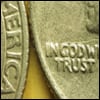There are some people who profess greatness, but in moments of struggle, anger or challenge, their true colors come to the fore.
And then, there are others who claim to be simple, modest and plain individuals, but during certain circumstances, one can't help but gain a glimpse of their true greatness and spiritual fortitude.
Aaron (name has been changed) is a man in the latter category.
Aaron is a close friend of my family. Recently, his teenage son suffered a tragic accident. A group of his friends had been lighting fireworks when inexplicably a terrible mishap occurred and one exploded in his face. Although he was rushed to the hospital's emergency room, the damage was irreversible, and the sight in one of his eyes was permanently lost. After hours of laborious surgery, the other eye was thankfully salvaged and the doctors were able to assure the family that the ugly scar on the young boy's face would eventually completely heal.
At a moment of such unexpected horror, the reaction of a parent would understandably be anger and outrage at the unfairness and cruelty of life. It would be expected for such a parent to become submerged in a losing battle against an overpowering bleak and bitter misery as he experiences feelings of incredible self-pity for the terrible ordeal facing his son and his future.
But not Aaron.
Soon after the surgery, Aaron called my father, his rabbi, to explain, "I thank G‑d that my son's life was spared. The accident could have been far worse; he could have lost vision in both his eyes and become blind for life. His face, too, could have been permanently disfigured. We are very fortunate."
The first time that Aaron met my father in person after the accident, my father was in the middle of delivering a Torah class. When he spotted him, my father immediately stopped his class, approached Aaron and the two embraced. What words of comfort could he say to a man of such caliber?
Aaron revealed his spiritual stamina again when he shared his unbelievable reaction to this encounter with my husband, in the days that followed. "You should know how special your father-in-law is," he began. "He knows how to comfort like only a true friend and mentor can. His actions convey more than mere words."
After my own nine-year-old son approached Aaron to enquire about the welfare of his son, Aaron remarked to my husband (and found the time to call my parents to compliment them on their grandson's conduct), "Your son is so mature," he remarked, putting aside his own feelings at such a painful time. "Many adults have a difficult time facing me after this accident. But I marvel at the maturity of your son, to ask me in such a forthright manner, so sincerely and so maturely."
From where does an individual find the fortitude to overlook his son's new disability and focus instead on his fortune at being alive and on the abilities that he still possesses?
What enables a father to see beyond the bleakness of his own tragedy and focus on the outpouring of love and compassion of those around him?
How does a parent see the light and goodness of life at a moment when darkness and difficulty has penetrated into the life of his most beloved?
Honestly, I don't know the answers to these questions.
But what I do know is that when you are fortunate to witness such greatness, you can only stand in awe—and attempt to learn from its penetrating message.







